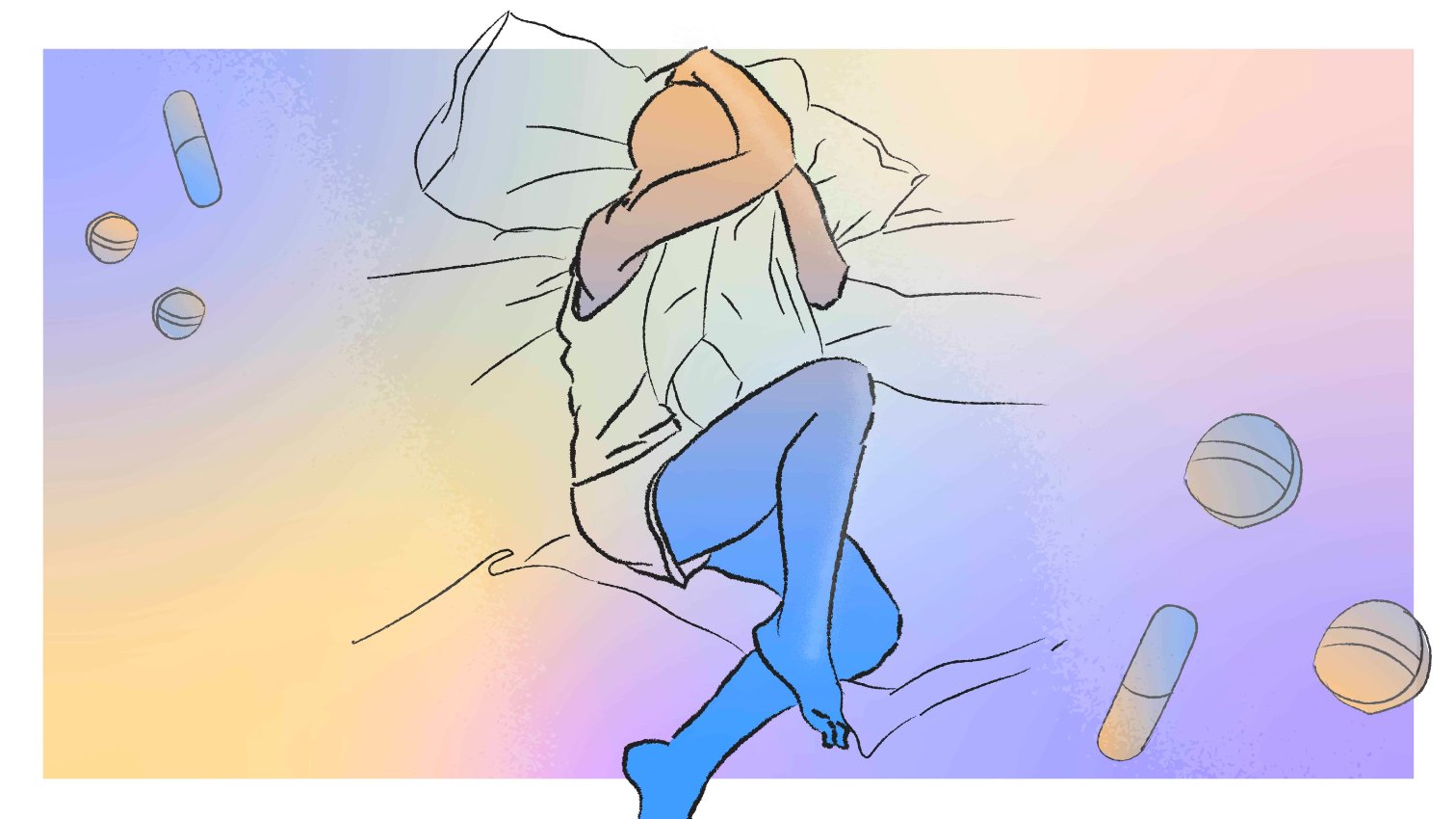
Quick Facts 
Benzodiazepines, also known as benzos, are a class of medications used to treat anxiety, insomnia, and certain other medical conditions. They are also common in recreational drug use.
⬇️ Benzodiazepines are depressants (downers) that provide calming and anxiety-reducing effects.
🔴 Benzodiazepines have a high risk of addiction, especially with long-term use. Physical dependence can lead to severe withdrawal symptoms when discontinued.
What is it?
Benzodiazepines are a class of psychoactive drugs that affect the central nervous system and enhance the effect of the neurotransmitter GABA, which produces a calming, anxiety-reducing, and sleep-inducing effect.
Medically, benzodiazepines are used to treat anxiety, insomnia, muscle spasms, and seizures (such as in epilepsy). Examples of medications in the benzodiazepine group include Sobril, Stesolid, and Temesta.
Nowadays, it is less common to use benzodiazepines for sleep disorders because the substance remains in the body for longer and can lead to dependence. If prescribed, it should be for short-term sleep issues and not longer than three weeks.
What does it look like?
Benzodiazepines come in several forms:
- Tablets that are usually small and white, but can be colored and have various shapes depending on the manufacturer.
- Capsules, commonly gelatin capsules containing powder or liquid.
- Benzodiazepines can also come in liquid form. The liquid form is used for oral or injectable administration, predominantly used in hospital and medical care
How is it used?
Benzodiazepines can be taken in various ways:
- The most common method is to swallow tablets or capsules
- Some tablets dissolve under the tongue for faster effect.
- The liquid form can be injected, usually in medical settings.
How does it feel?
The effects of benzodiazepines can vary depending on the dose and individual tolerance. Users may feel:
- Calm and relaxed
- Reduced anxiety
- Drowsiness
- Muscle weakness
- Improved sleep
Benzodiazepines and Sex
Benzodiazepines can be used to reduce anxiety and increase relaxation during sex. However, they can also lead to decreased sexual desire and performance. They can also affect the ability to make sound decisions.
Safer Sex with Benzodiazepines
- Communicate with your partner about your intentions and boundaries.
- Use condoms and lube to reduce the risk of STIs.
- Be aware that benzodiazepines can affect your ability to make sound decisions.
Side Effects and Long-term Consequences
Benzodiazepines can have both short-term and long-term side effects.
Short-term effects may include drowsiness, dizziness, confusion, memory problems, and coordination issues.
Long-term use can lead to increased side effects and risks, such as:
- Increased fatigue, difficulties with concentration, memory, or balance
- Development or worsening of mental health issues like anxiety, worry, and depression
- Tolerance development
- Risk of addiction
- Withdrawal symptoms upon discontinuation
- Increased risk of falls and accidents
- When combined with opioids, there is also a risk of serious or fatal overdose
Coming off Benzodiazepines
Coming off benzodiazepines can be very challenging; it’s best to consult with a doctor to develop a plan to cut down your dose slowly. Gradual reduction is crucial to minimize the risk of withdrawal symptoms. Even with a slow process, there is still a risk that withdrawal symptoms may persist for a period.
- It’s important not to stop abruptly, as sudden discontinuation can be dangerous. Gradually and slowly reduce the dose.
- Avoid alcohol and other drugs, as these can worsen withdrawal symptoms and make tapering more difficult.
- Regular physical activity, a healthy diet, and adequate sleep can help reduce withdrawal symptoms.
- Be kind to yourself. Tapering off can be a long and challenging process. Be patient and take care of your mental and physical health.
- Ask for help. For more information on support and tapering off benzodiazepines, click here.
Managing an overdose
An overdose of benzodiazepines can be dangerous and requires immediate medical attention. Signs of overdose include:
- Extreme drowsiness
- Confusion
- Impaired breathing
- Unconsciousness
- Blue-tinted skin (cyanosis)
If an overdose is suspected:
- Call emergency services immediately (112 in Sweden and EU).
- Keep the person awake and monitor their breathing.
- Try to obtain information about what and how much the person has taken, in order to provide accurate information to medical professionals. This is important so that the person can receive the appropriate treatment.
🔗 Addiction Risk

Physical dependence can lead to severe withdrawal symptoms when benzodiazepines are discontinued. Common withdrawal symptoms include:
- Palpitations
- Sweating
- Tremors
- Sleep disturbances
- Nausea or vomiting
- Transient hallucinations/illusions
- Restlessness
- Anxiety
- Seizures
Not everyone will experience withdrawal symptoms.
Benzodiazepines and other drugs
Combining benzodiazepines with other drugs can be extremely dangerous:
- Alcohol enhances the sedative effect and can lead to respiratory depression.
- Depressives such as Opiates
increase the risk of respiratory depression and death.
- Stimulants
(MDMA/Ecstasy, cocaine etc.) can mask the effects of benzodiazepines, increasing the risk of overdose.
Benzodiazepines and HIV treatment (ART)
Benzodiazepines can affect HIV treatment by impairing adherence to medication. Long-term use can lead to forgetting to take medication regularly.
🕐 Take your HIV medications regularly. Set an alarm or reminder on your phone if needed. Take substances and HIV medications at different times to reduce the risk of side effects. Use low doses of substances when taking medications simultaneously.
🗣️ Talk to your doctor or an expert about interactions between HIV medication and benzodiazepines.


